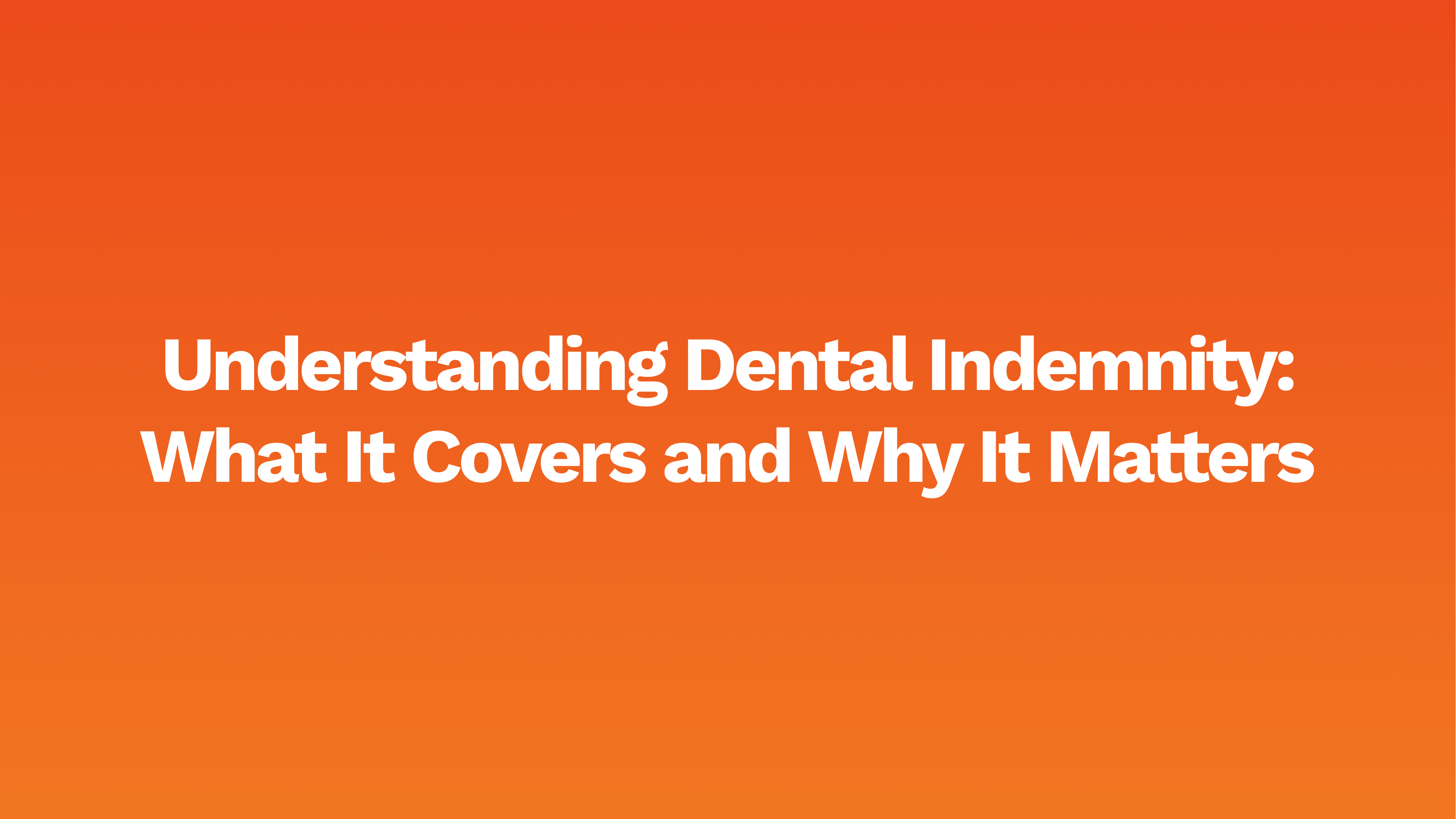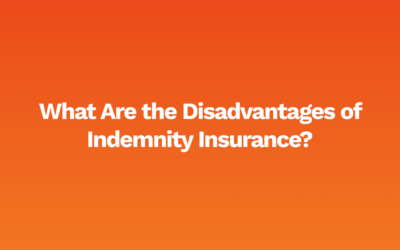For dental professionals, protecting their practice and reputation is paramount. One of the most effective ways to achieve this is through dental indemnity insurance. This specialised insurance provides vital coverage in the event of claims arising from clinical errors or patient dissatisfaction. But what exactly does dental indemnity cover, and how does it differ from other forms of protection, such as discretionary cover offered by dental mutual organisations?
Let’s explore the essentials of dental indemnity and the advantages of non-discretionary policies like those offered by Densura.
What Does Dental Indemnity Cover?
Dental indemnity insurance primarily covers three key areas:
- Legal Costs:
In the unfortunate event of a claim, legal proceedings can be both stressful and expensive. Dental indemnity insurance covers legal costs, including solicitor fees, court expenses, and expert witness fees. This ensures that dental professionals have access to high-quality legal representation without bearing the financial burden themselves. - Compensation Payouts:
If a patient is awarded compensation due to a clinical error or perceived dissatisfaction with treatment, the insurance covers the payout. This protects the dentist from potentially crippling financial liabilities. - Legal Expenses:
Beyond covering direct legal costs, dental indemnity also extends to legal expenses associated with defending against regulatory investigations, disciplinary hearings, or other professional disputes. This comprehensive coverage ensures that dentists are supported through every legal challenge they might face in their professional careers.
By having this insurance, dentists can ensure compliance with legal requirements while safeguarding their reputation and financial stability. Dental indemnity is not just about financial protection; it also offers peace of mind, allowing practitioners to focus on delivering the best possible care to their patients.
Discretionary vs. Non-Discretionary Cover: What’s the Difference?
One of the most significant decisions dental professionals face when choosing indemnity insurance is whether to opt for discretionary cover from dental mutual organisations or non-discretionary cover from providers like Densura. Understanding the difference is crucial for making an informed choice.
Discretionary Cover
Discretionary cover, as the name suggests, means that the provider has the discretion to decide whether to assist with a claim. Dental mutual organisations often operate on this model. While these organisations have a long history of supporting their members, the discretionary nature of the cover means there is no legal obligation for them to provide assistance. This can create uncertainty, as a claim may be declined at the provider’s discretion, leaving the dentist without support when it is most needed.
Non-Discretionary Cover
In contrast, non-discretionary cover, like that offered by Densura, is a legally binding insurance policy. When a claim arises, the provider is contractually obligated to provide support, including covering legal costs, legal expenses, and compensation payouts, as outlined in the policy terms. This removes any ambiguity and ensures that dentists can rely on their insurance when facing a claim.
Why Choose Densura’s Non-Discretionary Cover?
Densura stands out in the dental indemnity market by offering non-discretionary cover that combines comprehensive protection with regulatory oversight. Unlike discretionary cover, Densura’s policies provide clear terms and guaranteed support when claims arise. This means dentists can practice with confidence, knowing that they are fully protected against potential legal and financial risks.
Moreover, Densura’s non-discretionary cover ensures that claims are handled swiftly and professionally, minimising disruption to the practice. The clarity and reliability of non-discretionary policies make them an attractive option for modern dental professionals who value transparency and peace of mind.
Dental indemnity insurance is a critical safeguard for dental professionals, covering legal costs, legal expenses, and compensation payouts in cases of clinical errors or patient dissatisfaction. By ensuring compliance with legal requirements and protecting financial stability, it allows dentists to focus on patient care without the constant worry of potential claims.
When choosing between discretionary and non-discretionary cover, it’s essential to weigh the pros and cons. While discretionary cover from dental mutual organisations has been a traditional option, non-discretionary cover from Densura offers greater certainty, transparency, and peace of mind. For dental professionals seeking reliable and comprehensive protection, non-discretionary dental indemnity insurance is a wise choice.



